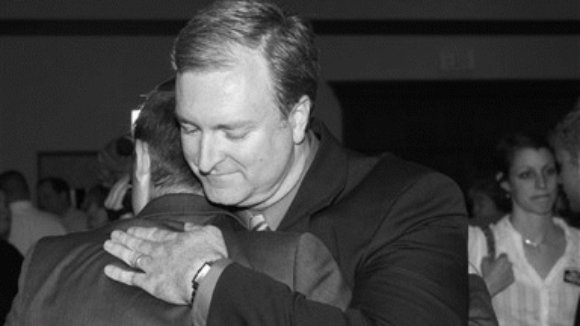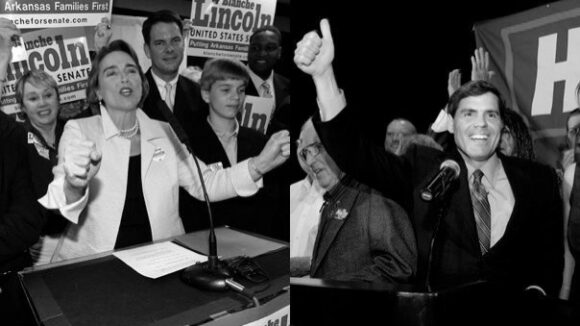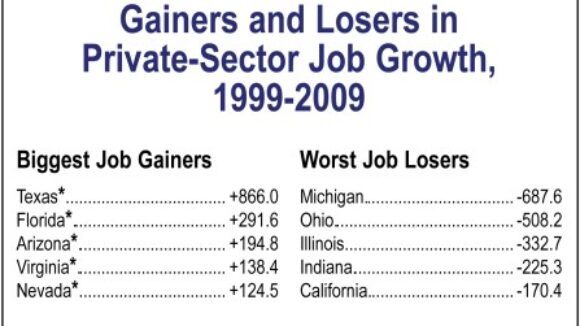Primary Voters Rebuke Issue-Dodging Republican
Senate candidate Trey Grayson (facing forward) refused to oppose legislation promoting union monopoly bargaining over public employees. He thus reinforced voter concerns that he was a Big Government Republican. Credit: AP (Source: June 2010 NRTWC Newsletter) Refusal to Respond to Right to Work Survey 'Raised Concerns' Just a few months ago, Kentucky Secretary of State Trey Grayson was widely considered the favorite to win the GOP nomination this year for the U.S. Senate seat now held by pro-Right to Work Republican Jim Bunning, who is retiring after two terms. A number of pundits contended that the strong support of Mitch McConnell, Kentucky's senior U.S. senator and the head of the GOP minority in the upper chamber of Congress, would practically guarantee Mr. Grayson's nomination. However, the Grayson campaign made serious misjudgments during the final weeks before Kentucky's May 18 primaries. Most important to pro-Right to Work Kentuckians, Mr. Grayson refused to pledge to oppose several of the top power grabs now being advanced on Capitol Hill by Organized Labor, the #1 pro-Big Government special-interest group in America today. More broadly, many voters who were deeply concerned about the rapid growth in federal spending under the George W. Bush Administration as well as under the current one became convinced Mr. Grayson lacked the intestinal fortitude to fight to reduce spending from its current stratospheric level. 'Any Genuine Opponent of Big Government Would Eagerly Oppose' Police/Fire Scheme




